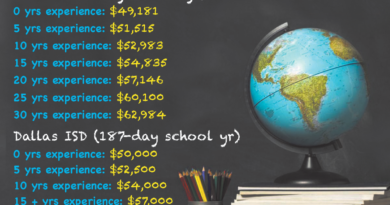Spaeth Coaches Students on Real Face Time
Merrie Spaeth is best known for her consulting work in high-profile cases involving public-relations damage control. Except she prefers to call it “reputation restoration.”
That innovative perspective on the art of spin has landed Spaeth jobs in presidential politics and allowed her to become a successful author and public speaker. She’s been president of her own Dallas-based communications firm for almost three decades.
Yet her methodology isn’t restricted to damage-control cases involving experienced corporate clients. She’s found it works just as well for young adults trying to tout their credentials during interviews for colleges or jobs.
“Expert knowledge of a topic isn’t at all the same thing as being able to talk about it and communicate it, either to audiences or to the press,” Spaeth said. “We are known for crisis management, but the great bulk of what we do is help people tell a positive and compelling story that’s relevant to the listener.”
Early in her career, Spaeth realized that getting a message to resonate with its intended audience is less about what you want to say than what you want other people to hear. That strategy can be applied to numerous scenarios on scales large and small, she said.
“We began to look at communication as a tool for influence,” she said. “How do you understand what they hear and what they believe, and how do you influence what they remember?”
The decision to apply
Spaeth’s methodology to students began several years ago, when a client approached her about meeting with his son, who was a candidate for an appointment to one of the military academies. The executive feared his son wouldn’t have the confidence to interview well.
“The techniques translate directly,” Spaeth said. “There are whole industries that have now been built up to get your kid into Yale, or wherever it is. But one of the things that’s incredibly important is the face-to-face interview. The interviewing skills that are required can be benchmarked and distilled. Fundamentally, you have to be responsive to the question and yet understand that you have a narrative of your own. You need to be a good storyteller.”
It’s difficult to stand out among a group of worthy candidates during an interview, which is why Spaeth and her team emphasize rehearsal and on-camera preparation — using positive words and avoiding negative ones, creating headlines and proof points, using attentive eye contact and facial expressions — to make a lasting impression and create the right perception for interviewers.
Connor Spencer, a senior at John Paul II High School in Plano, has been the master of ceremonies for a Veterans Day event at his school for the past three years. He credits Spaeth with improving his confidence as a public speaker.
“Public speaking is no longer a challenge,” Spencer said. “I have zero anxiety and it now comes naturally for me to speak to a mass amount of people with assurance.”
Spaeth said she’s never marketed that segment of her business, because it’s something she’s typically done for friends or through word-of-mouth referrals. However, she often finds it inspiring to work with students in the social-media age.
“With young people today, there’s not a lot of emphasis on learning how to communicate,” she said. “Everybody has gone mobile, which has some really significant downsides in terms of learning how to express yourself. You have to be able to articulate. It will stand them in good stead for the rest of their lives.”





